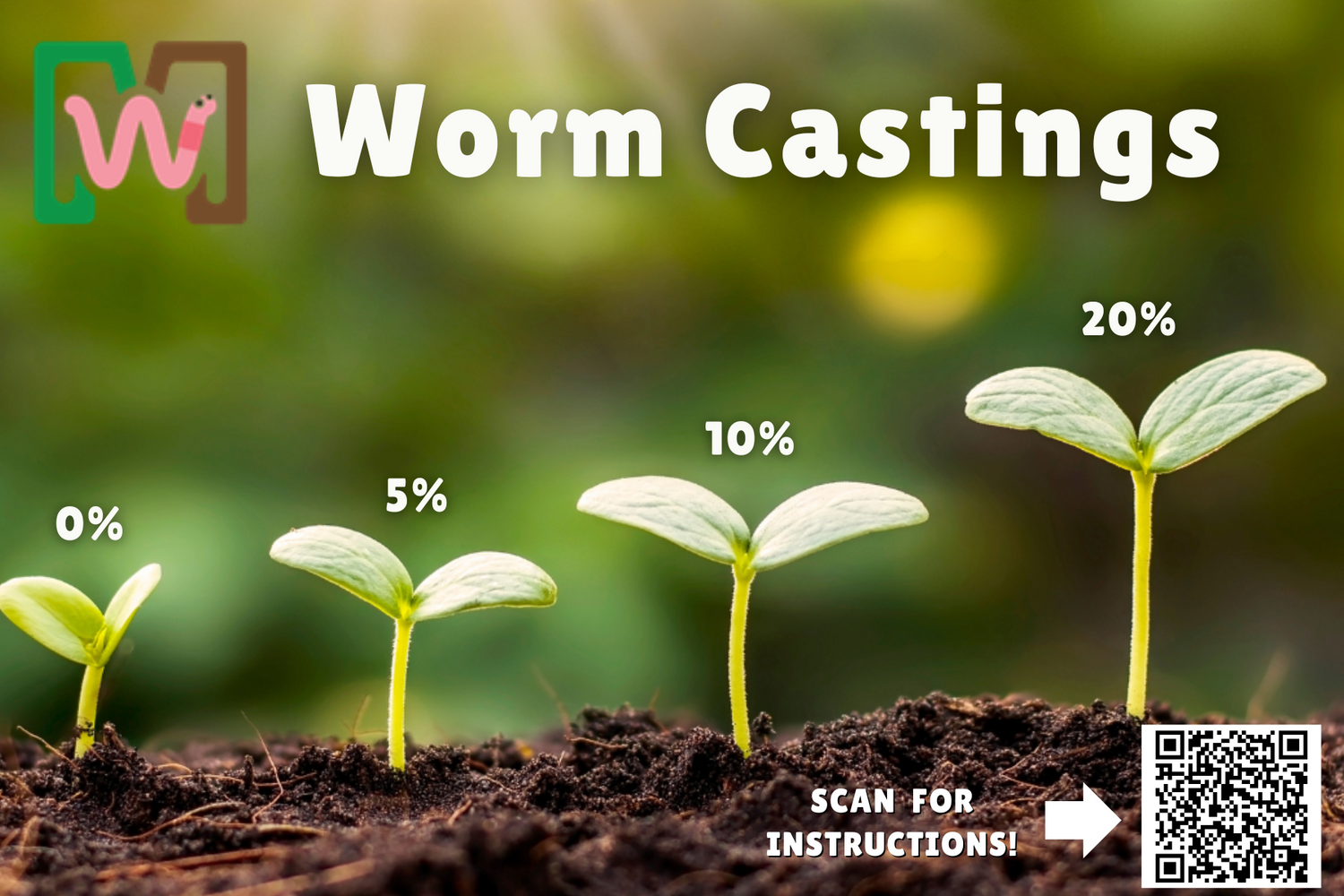In soil care, it’s always worm castings vs compost. Both are organic and offer biological value. But they don’t serve the same function or have the same impact.
What Is Compost?
Compost begins as everyday organic waste. Kitchen scraps, garden scraps, and every other organic waste make compost. Now, is worm castings same as compost? No. When microbes break these down under heat and moisture, the result is dark, crumbly, and alive with microbial diversity.
It doesn’t just feed the soil. It shapes it. Compost loosens up the heavy compactness of your garden soil. Thus, moisture retention improves, the soil becomes quite grippy, and the roots can finally breathe better.
Does that mean compost wins in compost vs worm castings?
Hold on, it has limitations. Quality depends on what went into the pile and how it was managed. Poorly composted material may host pathogens. Weed seeds may survive if internal heat never spikes. Nutrient levels vary, sometimes unpredictably.
What is Worm Castings?
Worm castings form inside the gut of earthworms. As they digest organic matter, especially soft plant debris, it’s broken down further and chemically transformed. The result? Castings. Fine, black, rich in bioavailable nutrients, and packed with beneficial microbes.
They’re powerful, despite their modest volume. Nutrients like nitrogen and calcium are immediately available. Roots don’t need to wait. The microbes introduced can even help suppress harmful fungi or bacteria.
They’re clean. They don’t smell. There’s no risk of burning tender roots. You can use them at planting, even during germination. But they take time to make. A large pile of food scraps turns into only a few handfuls of castings. Scale is limited unless vermicomposting is well-developed.
What is the difference between worm castings and compost?
|
Aspect |
Compost |
Worm Castings |
|---|---|---|
|
Source Material |
Decomposed organic waste |
Worm-digested plant matter |
|
Nutrient Profile |
Moderate, slowly released |
High, instantly bioavailable |
|
Soil Structure Impact |
Builds volume and texture |
Minimal textural contribution |
|
Application Style |
Broad surface or mixed-in amendments |
Precision use at root zones |
|
Microbial Diversity |
Varied and generalist |
Focused, enzyme-active flora |
Here’s another point on compost vs worm castings: they serve different purposes. Compost supports structure. Castings boost the function. One changes the soil’s physical character. The other interacts with plant metabolism. They're almost complementary.
Checkout our short for a quick guide:
What are the potential benefits of worm castings vs compost?
Compost acts as a system stabilizer. It helps the soil store water and promotes microbial diversity. From an agroecological perspective, compost strengthens the system's ability to buffer environmental stress.
Worm castings work more like a targeted feed. They deliver nutrients in forms that plants can absorb immediately. They influence root development. They quicken early growth stages. In this way, castings function more as a precision input than a broad soil conditioner.
When combined, the relationship becomes layered. Compost builds the canvas. Castings add detail.
What are the advantages of worm castings vs compost?
The nutrients in worm castings do not need to be further broken down by the plant. It saves energy for the plant. Castings home microbial ecosystems, which makes your garden plants quite healthy.
They don’t carry odor. And because they won’t burn plants, you can use them generously with sensitive seedlings.
Bringing in the debate of worm compost vs worm castings, it can be said that compost can be used at large, as it is more readily available and more affordable to produce. They are thus best for large grounds.
Diagram: Vermicomposting Process from Source.
What are the disadvantages of worm castings vs compost?
Compost, while inexpensive, takes effort. It requires the right carbon-to-nitrogen ratio. Moisture must be monitored. Without thermal consistency, pathogens may survive. Weed seeds might linger. And the results vary based on ingredients.
Worm castings are more refined but slower to produce. Large volumes demand a managed worm system. Even then, output is limited. They can’t be used to improve bulk soil structure. Their role is more biochemical than infrastructural.
So while castings deliver targeted value, they won’t rebuild degraded land alone. Compost, conversely, won’t trigger rapid plant response on its own either.
How to Use Worm Castings and Compost in Your Garden?
- To improve soil: Spread compost across your growing beds as deep as 2.5 to 4.5 cm, depending on soil condition. First, fertilise, then plant.
- In Raised Beds: Mix 10–20% worm castings into your soil before planting.
- To feed actively growing plants: Sprinkle worm castings around the base and then water them. Roots will draw in the available nutrients over the next few days. Even a small handful can make a visible difference.
- To brew liquid fertiliser (worm casting tea): Soak a mesh bag of worm castings in a bucket of water for 24 hours. Aerate if possible. Use the resulting liquid as a foliar mist or soil drench. Dilution rates vary by crop and stage.
How Can Memes Worms Help You?
At Memes Worms, we focus on one thing—life in the soil. Our worm castings are clean, microbe-rich, and consistently effective. No chemicals. No fillers. Just biology at work.
We produce castings for all scales—whether you're tending herbs on a patio or cultivating raised beds. Each batch is handled with care, using only natural inputs. Our worms are raised on real food, not waste sludge. That means your garden gets nothing but clean, nutrient-dense support.
Done solving the mystery of worm compost vs worm castings? If you're ready to build plant health from the ground up, we’re here to help.
FAQs on Worm Castings vs. Compost?
Is worm castings better than compost?
Depends on your focus. For fast nutrient uptake and gentle feeding, castings are better. For rebuilding soil volume and structure, compost has the edge. Together, they’re stronger.
Can You Mix Compost and Worm Castings?
Yes, and it’s often ideal. Compost gives structure. Castings bring fast-acting nutrition. The combination supports both soil and plant health.
Can I just put worm castings on top of soil?
Absolutely. It’s called top dressing. Spread a thin layer near the plant base. Water it in. Nutrients will seep down gradually.
Is Compost a Viable Substitute for Worm Castings in Gardening?
Not quite. Compost offers long-term benefits but lacks the nutrient immediacy of castings. For performance-driven results—especially in small garden zones—worm castings make a bigger impact in less time.




1 comment
Eugene Costa
A great informative website, I have been vermicomposting for a year now in Naples Fl and hope to hit the farmers markets the begining of the 2025 snow bird season. Have been following Captain Matt and Jane fro Loxahatchi, have 17 bins of Red Wigglers. I will also be following your website as well. Glad to have come across your very informative website and learned a lot about soldier flys.
Leave a comment
All comments are moderated before being published.
This site is protected by hCaptcha and the hCaptcha Privacy Policy and Terms of Service apply.